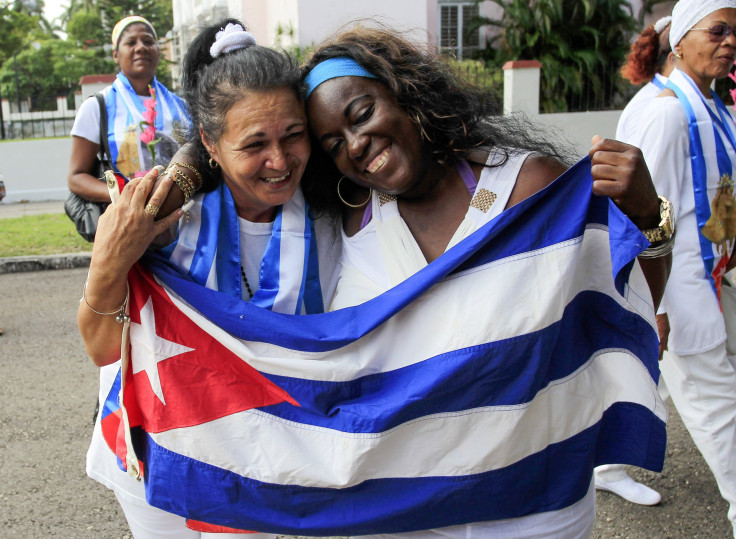
Obama could announce Cuba’s removal from the U.S. terror list near the dates of the Summit of the Americas in Panama next week, according to a State Department official. Inclusion on the list has been the main stumbling block in newly rekindled U.S.-Cuban relations. Cuba loathes being lumped into the list, which includes Iran, North Korea, and Sudan -- all of whom have arguable sponsored violent groups in the 21st century. Cuba sponsored what it considered revolutionary insurgencies up until the 1990s, but ceased to do and has since condemned terrorism. Most recently the Caribbean nation played a key role in brokering peace between the Marxist FARC rebels and the Colombian government.
Inclusion on the terrorism list has always been inconvenient. First and foremost, it prevents Cuban officials from using U.S.-based banking services. That would pose a logistical nightmare for a Cuban embassy in D.C. that officials from both countries hope to inaugurate this year. While not a precondition for resuming diplomatic relations, members of the Cuban diplomatic delegation said in February that it was a key element of reconciliation.
"In our view it's not necessary to put it all in one package because if, for example, in a few weeks we receive some satisfactory notification in regards to the matter of Cuba's removal from terrorist list, I think we will be ready to then begin talking about how to formalize the reestablishment of relations," Josefina Vidal, Cuba’s lead negotiator, said in an interview published in Cubadebate in late February of 2015.
The U.S. government is likely to recommend that Cuba is removed from the list, a White House official told CNN on Tuesday. “There was no indication that the Cuban government provided weapons or paramilitary training to terrorist groups,” said a 2013 report by the Department of State. Few if any Latin American nations associate Cuba with terrorism, and the last Summit of the Americas, held in Colombia, was largely dominated by a debate over why the country was not represented. This year, in Panama, Cuba will send a delegation for the first time in the history of the summit, which began in the mid 1990s. An announcement of Cuba’s removal from the terror list in Panama next week could be the icing on the cake.
Obama asked for a review of Cuba’s inclusion following the beginning of talks with Cuban diplomats last December. If he decides to remove Cuba from the list, it won’t take effect right away. Congress would have 45 days to comment on the recommendation before it could be executed. Cubans shouldn’t be worried that approval will be held up; congress doesn’t have the power to block removal from the list.
© 2025 Latin Times. All rights reserved. Do not reproduce without permission.




